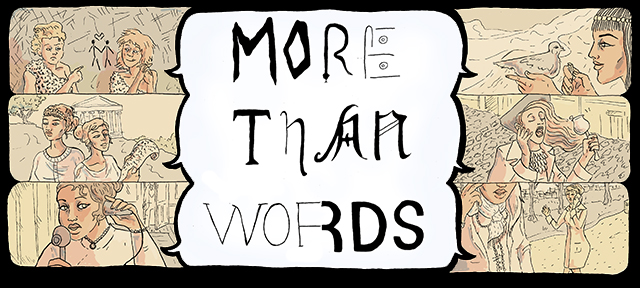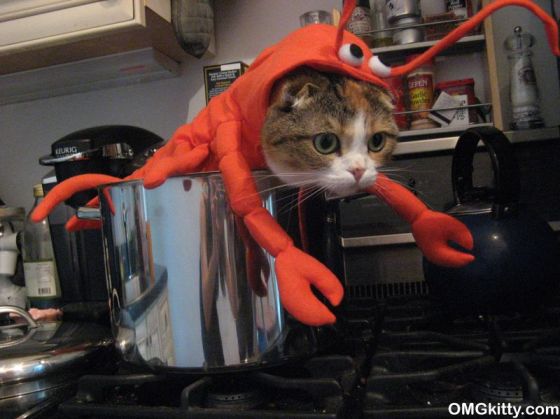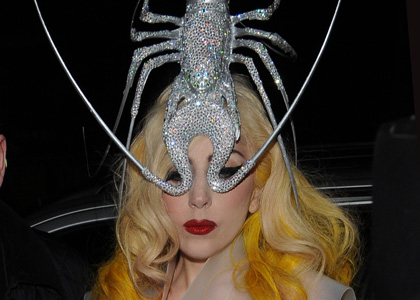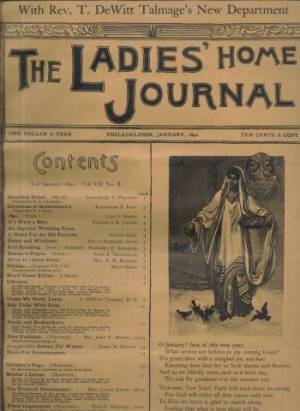Welcome to the tenth installment of More Than Words, where I take queer words of all sorts and smash them apart and see what makes them tick. Every week I’ll be dissecting a different word, trying to figure out where it came from, how it has evolved, where it might be going, and what it all means. It’s like reading the dictionary through a prism. Feel free to send word suggestions to [email protected].
Header by Rory Midhani

You know this word. It shows up before everything from Gaga to Godiva to Marmalade to Foot Locker. Luck be one, tonight. There is also one “of the lake,” somewhere, and there are a bunch in red, black, white, and waiting. My favorite might be the First one, or the one With the Little Dog. And when someone calls me it I never really know how to feel, which means we should probably all talk about it. Right, ladies?
“Lady,” like its companion “lord,” arose from a surprisingly humble starter. “Lord” is a shortened form of “hlafweard,” which means, literally, “keeper of the bread.” Lady is from “hlafdige,” or “kneader of the bread.” (Petition for Ali to start a new column entitled “Kneader In The Bread.”) It got shortened to “lafdi” around the 12th century, and slowly syncopated out that middle ‘f’ over the next two hundred years, right around when it stopped meaning someone who simply has a lot of actual dough and started meaning someone who has a lot of figurative dough, along with class clout, the kind of genes that get you a title, and the corresponding knowledge of what to do at teatime. Over the years, nobility, though still appreciated, was dropped as a strict requirement — by the time Daisy Eyebright wrote her Manual of Etiquette in 1887, a lady exhibits “the touchstones of politeness and good breeding . . . [and is] the same in the kitchen as she is in the parlor.” Full of bread, presumably.

DID YOU KNOW THAT IN LOBSTERS, THE CALCAREOUS APPARATUS, WHICH TRITURATES FOOD, IS ALSO CALLED THE “LADY”? WELL MEOW YOU DO.
1940s disputes about the word mostly centered on the question “which is better: a lady or a woman?” Writer Sinclair Lewis made his position clear with his famous quotation about how “a lady is a woman so incompetent as to have to take refuge in a secluded class, like kings and idiots, who have to be treated with special kindness because they can’t take it.” Meanwhile, I couldn’t crawl through an old newspaper without hitting my head on the story of William Allen White, a journalist who, in his 1946 autobiography, recalled a time when he wrote a story that referred to “a woman” who had been convicted of prostitution. Said woman later stopped by his office, infuriated — not that he’d told the world about her crime, but that he’d called her a woman rather than a lady. White then set editorial guidelines asking that all average Jos be referred to as women and all “court characters” as ladies. I think the takeaway from all this is that, ladies or women, 1940s journalists sure did think we were ridiculous.
Nothing was solved over the following twenty years. In the April 10th, 1963 edition of the Sarasota Herald-Tribune, sandwiched in between a political cartoon about the IRS and an advertisement for teak wastebaskets (“non-rusting!”), Sarasota Scenester Stan Windhorn trumpets at length about the confusion surrounding the word ‘lady.’ After quoting “the renowned Mr. Webster” verbatim, he goes on to reveal that he has made his own study of its actual usage by, of course, “polling many men.” The results: “ladyhood is acquired with age,” though how much age is needed is up for debate: kids who are called ladies will “wreath into a blossomy smile,” teens who are described with the phrase are probably being made fun of, women between 30 and 60 think the term implies “general uselessness,” and older women like it because it makes them feel like they have properly learned all the “musts” and “must nots” of their childhoods. Regardless, real ladies have the ability “to survive with good humor through such trials as supermarket visits and leadership of the Cub Scout den.” And condescending newspaper columns.

AFOREMENTIONED LOBSTER FACT MEANS THIS IS A LADY-FACED LADY
The 60s were apparently full of such ladies — and of people who had trouble spotting them, and liked to squeeze entire columns out of that trouble — as the 1968 Georgia Bulletin also outsourced definitions. They ended up with a woman who, besides the aforementioned characteristics, could clean up everything but her beau’s diction (“if she is an indifferent housekeeper, it is fatal to her influence and a blemish to her garments”) and had been trained since birth (“there is no earthly reason why girls, from 8 to 18, should not learn and practice the whole round of housekeeping — from the first beating of eggs, to laying carpets and presiding at dinner parties”).
It’s not hard to understand why, in the 1970s, feminists turned on the word. In her 1973 work Language and Society, linguist Robin Lakoff describes lexical differences between how men and women are expected to speak, and concludes that women are associated with, and rewarded for, linguistic constructs that privilege politeness over strength, including “trivializing” (saying “dear me!” instead of “oh shit!”), “frivolity” (bothering to discuss what color one should dye one’s French poodle), and “tag-questioning” (declaring the answer to a question and then asking anyway — “John’s here, isn’t he?” — in a way that allows the other member of the conversation to assert authority no matter what). Lakoff calls speaking like this “talking like a little lady.” Later in the same book, Lakoff argues that calling someone a lady saddles the person herself with frivolity: “the more demeaning the job, the more the person holding it is likely to be described as “lady”… one says, normally, “woman doctor.” To say “lady doctor” is to be very condescending: it constitutes an insult… if in a particular sentence, both woman and lady might be used, the use of the latter tends to trivialize the subject matter under discussion, often subtly ridiculing the woman involved.” (The jury is out on the construction “lady cab driver,” and they won’t be back for a while, because they’re dancing.)
These days, as reclamation movements gain steam across the board, things have become more complicated. There are now as many ways to call someone “lady” as there are actual ladies. As Ann Friedman explains in a piece for the New Republic, “the word “lady” has become core vocabulary of feminism in the age of irony… it encapsulates the fundamental mutability of modern feminism.” More casual than “woman,” but more sophisticated than “girl,” and flippantly aware and dismissive of the patriarchal expectations (of grace, poise, charm) the term has carried through history, while still asserting the presence of grace, poise, and charm — ladies because we can and want to be, not because we have to be. Friedman collects the work of female journalists at a blog she calls Ladyjournos “as a deliberate nod to the fact that it should be ridiculous… to have to point out that women are doing good work.” Simone of Lady Economist also chose her blog’s title, despite criticism, “because it sounds outdated and old fashioned, [as is] the fact that women represent a minority in the field.” The Hairpin has an ‘Ask a Lady’ column (balanced out by ‘Ask a Dude,’ because dudes are the new lords). Thus also the much-discussed ‘ladyblog.’
And then there is the backlash-backlash (is that a forwardlash?), in which Sarah Nicole Prickett writes for Vice about how she “wants to be a woman, always a woman, not ever the liberal, pale kind of lady that is feminism’s new white-gloved wave… I haven’t spent my entire feminism waiting to “stylishly signal” that femininity is a construct but also totally cute and young. I want to signal that if I am fucked with, I will shoot a man down in Grand Central Station.” Jessa from Girls is, emphatically, “not the ladies” (Shoshanna is, though). Some hate it because it makes them feel too old; others, too young. Jezebel thinks we just need more words to cover all our bases.

THE ORIGINAL LADYBLOG
As a queer lady, it makes me feel a little strange to even write “as a queer lady.” Despite the word’s extensive history and various associations, it still seems to me light and airy in a way that, even ballasted by an ironic side-wink, doesn’t really remind me of myself or anyone I know. And although the word has technically become more inclusive through the ages, the newest reclamation attempt doesn’t seem interested in furthering that as much as it seems interested in creating a small in-club of people who understand the reclamation. That being said, I fully believe that if you want to be called a lady, you should be called a lady. And so if you would like me to call you a lady, I will. As long as you make me some bread.

From the headline, I thought we were going to discuss the word “tramp.” Is it bad that I’m a little disappointed, especially considering “lady” is a lot more relevant to/present in my actual life?
i’m sorry you’re disappointed! but you know, you just gave me a pretty good idea for next time.
“Tramp” is a super interesting word!! It makes me think Frank Sinatra and lower-back tattoo simultaneously…
Oh, yay! (I’m not actually disappointed; every More Than Words is a great More Than Words.)
I don’t know what it means, but I am definitely adding ‘can wreath into a blossomy smile on command’ to the special skills section of my CV.
Also, I REALLY REALLY want to start travelling via lady cab. It sounds significantly nicer than the ‘half an hour late and smells faintly of late night regret and happy hour’ cabs I’ve been using until now.
Wow, I really want to ride in a cab from your city. Intimidating middle aged ladies who do kick boxing sound awesome. I can only hope that when my friends and I are middle aged that some of us will be intimidating kick boxers. Especially the ladies. Because male kick boxers are cool and all, but…
…well I was going to say that they don’t challenge gender stereotypes as much, but then I got distracted by the mental image of a really smart thirty-something (yes I am aware that is not middle-aged but brains are not always literal – no letters!) feminist kick boxer guy. In some sort of shirtless gym outfit. With a literary tattoo. And possibly tortoiseshell glasses? (Only when he’s not kick boxing, of course.)
…um. So now you’ve had an unsolicited glimpse into my (kind of super pretentious) fantasy life, I guess?
Anyway it is now my goal to have at least one fairly involved conversation with an intimidating middle aged lady cab driver and kick boxer. In the cab she’s driving, if at all possible. It sounds like it would result in some dialogue worthy of a slice of life black and white indie film about young, stylish, progressive white people. The kind of scene that stands out more than the film itself, and reminds you that the kinds of people the main characters are – that those aren’t the only kinds of people in the world, and that they’re not even the only kinds with interesting lives. The kind of scene that makes you wonder if these kids’ lives are really all that interesting after all?
This got way more vivid than I intended.
…not sorry. Not really.
“(Petition for Ali to start a new column entitled “Kneader In The Bread.”)”
This needs to happen right meow.
Signed.
Ahahahaha. I love you guys.
But I know nothing about bread.
Search for a copy of “Bread in Half the Time,” use your food processor & microwave, follow the directions, and have a blast.
When I was a kid, I used to get disproportionately upset when someone called me a lady. I told my mom that I was “a woman, not a lady.” Haha, my childhood was badass in some ways…
I first saw this use when “Lady Fest” became big and it was mostly powered by riot grrrls (another interesting word). I didn’t really understand the “lady” movement then but over time have started to think about it in similar ways as you described, Cara. I usually use the word for in the singular for a friend like I will say “Hey lady” but, for whatever reason, I don’t call myself a lady or ever say “us ladies.” I generally don’t use it for groups though I don’t mind it for “ladies who like ladies” or I think it is really useful to say “lady-identified ladies.”
It’s a complicated word, thanks for breaking it down.
(And I will admit — sometimes when being really silly I will write “ladeez” which is meant to be tongue-even-further-in-cheek.)
the other day, i referred to someone as my “ladyfriend” (not a girlfriend, but something nice, you know?) (oooh look! i just tag-questioned!) and my friend responded that he’d like a “lordfriend.” it was basically the cutest thing i’d ever heard and also, it made me stop and realize for the first time that the opposite of lady isn’t necessarily “gentleman,” it’s “lord.” thanks for this timely little breakdown of lady, cara!
Over the past couple years I’ve become really fond of using lady or ladies. I’m convinced it’s because of my deep and unabiding love for the Lady and the Tramp.
I’m definitely one of those who’s reclaimed “lady” for its irony, so much so that my father and I (and I am quite a boi), refer to each other as Lady (me) and Man-Face (him) even in written correspondence. There’s a classic Fela Kuti song, aptly titled “Lady,” that pretty much encapsulates my/our feelings on the subject. Here’re the lyrics, if anyone’s interested; it’s a pretty kickass song, but it is in pidgin English, so be warned: http://www.lyricsmania.com/lady_lyrics_fela_kuti.html
Sarasota represent! Unfortunately in this case represent misogyny, but at least we’re mentioned?
I kind of like hearing people call me a lady, because some of my best friends use it as a term of endearment.
I do feel a little weird self-describing as a lady, though. (But not as weird as I feel calling myself a “woman.” I don’t know why, I feel female and all, I just don’t like the word “woman!”)
I feel the same. I’ll take lady over woman. I can’t even really pinpoint why this word bothers me. When I was growing up my mother would actually correct people if they called her a girl and tell them she was a woman (very feminist of her). And I went to a “women’s college” where they were vehemently not a “girl’s school”. Huh, maybe I associate it too much with 2nd wave feminists actually… I love when I publicly process my feelings and actually come to answers!
I’m the opposite.
“Lady” I tolerate as long as it’s “ladies and gentlemen (or “lords,” I suppose) and not “ladies and men,” which makes me feel like a china figurine set on a shelf. But generally I prefer “woman,” which throws off the dressage and just has a simple, clean-cut connotation to it.
However, I Can. Not. Stand – huge pet peeve – when people use the word “girls” to anyone over 17. I’m a teacher and constantly tell my students off for using it. Call me stuck in the second wave, but I really feel like we deserve more respect than that. I think it fully encapsulates our culture’s unhealthy obsession with youth and virginity.
Finally, what about the seeming growing use of “female” as a noun? As in, “You females stand over there.” For me it lacks the loaded connotation of “girls,” but still makes me feel a little bit like a biology specimen.
I LOATHE both “girls” and “females.” Girls, like Ladies, is condescending and demeaning, but Females is dehumanizing. OTOH, there’s “Hey, grrlfriend!”
My daughter went to Wellesley, where the sweatshirts proclaim, “No, I don’t go to a girls’ school without men. I go to a women’s college without boys.”
Oops, sorry, I didn’t see you had already popped in our lovely women’s college banner slogan.
Also, re females– this is used, in my experience, much more heavily in communities of color, including queer women and lesbian communities of color (though maybe this is also more confined to communities in the South?). I’ve never asked any friends why, I just accepted it as one of the ways that language descriptors differ among racial cultures (eg, stud, aggressive), but now that I am thinking about it, I think that “females” is used more often than “women” or “girls” though “ladies” is probably used second-most. Again, I’m saying this as someone who is white, so still an outsider regardless of how much I hang out with friends or at at black lesbian clubs or events. So, please take it as just that and maybe someone with more personal experience can chime in with their thoughts (unless I am derailing the “lady” topic in which case I am sorry!).
In my experience, “females” was an Army thing when units were first … er … integrated with women. The guys (sic!) just didn’t know what term to use. There’d be this weird hesitation when we were addressed: “Men … and females, yada yada.” This was back in the stone age, just as VietNam was winding down, and I suspect it spread from there, as many of the troops were Southerners and of color.
I think so much of it is context too. I def would not want to be called “girl” by many people and would, as my fab feminist mother raised me to do, would correct them (she also loved to make people call her Dr. instead of Mrs.). Actually, I didn’t give the full quip at our college which we loved– “Not a girl’s school without men but a women’s college without boys.” This was definitely one of the most popular slogans — this may have changed with the growth of the transmasculine community there, I’m not sure, though maybe not, as I think trans* men can still fit within this outlook if they don’t identify as “boys.” (I totally realize this maybe is stretching it– I’m not really defending it and not sure if it is still used).
Actually, context was already on my mind before I read your response as I was listening to a This American Life episode about living on a kibbutz at age 15 and the author could not stomach killing the chickens, which was something only the boys did. Afterwards, the men in charge said, “The lady didn’t want to.” He turned and responded, “You’re right, she didn’t.”
I love that he reclaimed that word on his own, but it was so pejorative in its use. It actually reminded me of the way on (apologies in advance!!) Glee that Coach Sylvester calls Kurt “Lady Hummel” which Santana picked up. In Santana’s hands, though she is the queen of catty, it still has a touch of love but not typically for Sue Sylvester. And I thought– why this particular word for him? What makes him a “lady” and used in a semi-derogatory way? All I could think was– his attention to facial moisturizer?
I really like “lady” and “ladies” (shocking, I really like ladies and I’m on Autostraddle), BUT…
…yes on the “girl” thing. I keep getting called “girl” at work and it makes me feel inferior, like I’m “the help” (and this is by my fellow employees because it’s a factory, not a restaurant or something in the service industry where it’s still not okay, but I bet it just happens a lot more). It’s fucking pissing me off. I’m 25! I don’t consider myself a woman because I’m irresponsible as fuck, but girl? HELL NO.
My friends and I use it as a term of endearment too, and I like it used that way. I don’t like it when someone who doesn’t know me well uses it implying that I am or should be all dainty-like.
(Says the person holding a china cup with her pinkie out in her avatar)
I’m not really sure why I feel so uncomfortable about the word “lady” in most contexts. If someone I don’t know well, usually a man, calls me a “lady,” I tend to assume I am being insulted. Only my peers can call me “girl” or “lady” without me feeling strangely awkward about it. I even get suspicious around “woman.” I identify as a woman entirely, and present unambiguously, but it seems intrusive somehow for other people to label me. It all seems to come with standards of behaviour, and assumptions, I guess? And marks gender as more relevant than I’d like it to be. Hmmm. Ranting and musing now. I don’t like “girl” or “woman” or “lady” and “guy” is masculine, which I am not. Perhaps people simply ought not refer to me using any identifying language.
Maybe it’s a generational thing, but I am totally anti lady. A lady is my mother’s bridge group circa 1962, all in dresses & flowered hats, eating tea sandwiches. A lady is ineffectual and trivial and powerless and condescending and condescended to. Uch. Why would I want to be a lady? Even as a kneader-of-dough (and needer, too), I’m still a woman. “And ain’t I a woman?!”
Can we please talk about the amazingness of that lobster cat?
I sometimes use “ladies” to talk to friends, especially (now that I think about it) gal pals of mine who aren’t queer, but also some of my male friends. That trilling, high-pitched “Ladieeeeees!” thing (or, as ace said above, “ladeez”), I guess. But only in some contexts, only with people I know well. Calling a stranger “lady” would be a very weird thing to do.
The other part of it is that I am really too much of a historian to be anti-lady; I totally recognize that the word is old fashioned, but then again, I’m all about change over time, so it’s fine by me to use words differently than their initial meanings intended them to be used – see “queer” itself, for instance.
YES! You just made me think of Missy Elliott’s “Work it”– “Hey LADIEEEEEES! You sure know how to work that.” One of my fav songs of hers, lyrically incredible but also IMO sexually empowering.
Oh and I so meant to +1 earlier on your bringing attention back to the lobster cat because YES.
I was watching a movie earlier and “Once, Twice, Three Times a Lady” came on and I thought, huh, yeah that’s another use of the word I’d forgotten– and what does it even mean to be “three times a lady”?… (and I’ll always love youuuuuu).